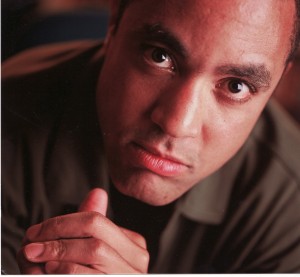Spring 2015 Semester
Wednesday, February 4th, 3:30pm, Kiva Auditorium
Dr. Joan Kelly Hall, Pennsylvania State University
Video & audio of talk (Intro begins at 12:25. The talk begins at 14:35.)
Title: Practices for Preserving L2 Teachers’ Epistemic Status
Abstract: The focus of this presentation is on the interactional practices experienced L2 teachers use when their epistemic status as expert language knowers is challenged. Epistemic status refers to the relative epistemic access to a domain of knowledge that exists between two interlocutors such that they each occupy different positions along a continuum that ranges from more knowledgeable (k+) to less knowledgeable (k-). In classrooms, teachers have high k+ epistemic status in relation to their students and they typically enact it by imparting information, asking display questions and controlling the taking of turns. Recent studies on epistemic practices in L2 classrooms have examined how students manage their epistemic positions in response to teachers’ questions, and how teachers handle students’ displays of lack of knowledge. What has gone unexamined is how teachers manage moments when their k+ status is challenged. This is what we will look at today.
The data comprise over 50 hours of video-taped recordings of three grammar classes from a university-level English language program and are part of a larger research project supported by the Center for Research on English Language Teaching and Learning (CRELLT) at Penn State. Using conversation analytic methods, I show the various multimodal practices such as body posture, gesture, and eye gaze in addition to prosodic and other linguistic practices that L2 teachers use when faced with grammar questions raised by students the answers to which would contradict or at least raise questions about what the teachers had just presented as factual information on a grammar rule.
The findings allow us to see what really happens in L2 grammar classrooms and thus provide us with “instructive descriptions of our worlds that rewrite how we see” (Macbeth, 2013). Such insights are what can help us make sensible decisions about how to handle similar issues in our own classrooms.
Bio: Dr. Joan Kelly Hall is Professor of Applied Linguistics in the Department of Applied Linguistics at Penn State University where she teaches courses on second language acquisition theories and research, conversation analytic research methods, and classroom discourse. She is also Director of the Center for Research on English Language Learning and Teaching (CRELLT) and Executive Director of the Intensive English Communication Program (IECP). Her research focuses on the interactional foundations of second and foreign language teaching and learning and her work appears in journals such as Applied Linguistics, International Journal of Bilingualism, Journal of Pragmatics, Linguistics & Education, Modern Language Journal, and Research on Language and Social Interaction. Her recent books include Teaching and Researching Language and Culture, 2nd ed (2011, Pearson) and L2 Interactional Competence and Development (2011, Multilingual Matters, edited with Hellerman, & Pekarek Doehler). Professor Hall currently serves on the Executive Committee of the American Association for Applied Linguistics as Past President. Previously, she served as Secretary-Treasurer and member of the Executive Committee from 2001-2005.
Wednesday, February 25th, 3:30pm, Kiva Auditorium
Dr. Margaret Van Naerssen, Immaculata University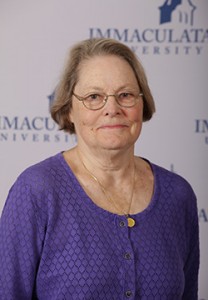
Title: Forensic Linguistics: Can Words Help Solve the Crime?
Abstract: Was the countess a co-conspirator in the robbery and murder of a jeweler that her boyfriend killed? In a murder case, did the suspect knowingly and intelligently waive his rights to an attorney? Also, did he have appropriate interpreting support in a coercive interrogation?
Using actual criminal and civil examples, Dr. Margaret van Naerssen shows how linguists can assist law enforcement officers, attorneys, and the court in their work by analyzing both spoken and written language. Language evidence might come from police interviews and interrogations, the courtroom, traffic stops, recorded conversations, written documents, e.g., threatening communications or police reports, language testing data, etc. Of particular concern with non-native English speakers is whether the suspect is faking a lower than truthful English proficiency.
Bio: Dr. Margaret van Naerssen, Ph.D. in applied linguistics/language acquisition (University of Southern California), coordinates graduate-level teacher training in cultural and linguistic diversity at Immaculata University (Pennsylvania). She is also occasionally an English language specialist overseas with the US Department of State. Since 1997 she’s done expert consultant/witness work in forensic linguistics at federal and state levels, in criminal and civil cases involving murder, rape, drugs, money laundering, robbery, fraud, contract and plain language guidelines, slander, medical malpractice, and interpreting issues. Most cases involve non-native speakers of English. She’s given presentations on forensic linguistics at the Smithsonian Institute, Washington D.C. and the FBI Academy as well as at professional conferences, including the 2013 PA State Trial Judges Conference, and in a continuing legal education program. She has published in the areas of language proficiency and evidence.
Wednesday, March 11th, 3:30pm, Walk Auditorium
Dr. David Ian Hanauer, Indiana University of Pennsylvania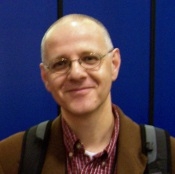
Title: Measuring Voice in Poetry Written by Second Language Learners
Abstract: There is increasing usage of creative writing in the ESL/EFL classroom based on the argument that this pedagogy develops writer’s voice, emotional engagement and ownership. Within the context of teaching poetry writing to second language learners, the current lecture presents a scientific approach to ways in which voice can be measured and then presents a study that empirically explores the claim that voice is present within poetry written by second language learners. The presented study explored the question: 1) Do second language poetry writers have a discernable voice in their written poetry? This issue was investigated in two different ways: 1) utilizing human reader ratings of the likelihood that two poems were written by the same poet; and 2) using computational linguistic methodology to explore systematic differences in specific linguistic features in poetry written by second language poets. The data presented shows that poetry written by the same L2 writer is more readily recognized as such and that relevant linguistic items have patterns of frequency of usage that are different for different poets. Together the two studies provide a compelling case that voice is measureable and present in the poetry written by second language learners. The ramifications of these findings on second language literacy pedagogical understanding will be discussed with the audience.
Bio: Dr. David I. Hanauer is a Professor of Applied Linguistic/English in the Doctoral Program for Composition and TESOL at Indiana University of Pennsylvania and the Lead Assessment Coordinator of the SEA-PHAGES Program situated in the Hatful Laboratory at the University of Pittsburgh. He is the author of 7 books including Language, Literacy and Learning in STEM Education (co-edited with Curry, 2014) and Poetry as Research: Exploring Second Language Poetry Writing (2010) and his articles have been published in Science, Qualitative Inquiry and a wide range of applied linguistics and educational journals. Dr. Hanauer has received funding from the Howard Hughes Medical Institute, National Science Foundation and the US Federal Department of Education. Currently, he is editor of the Scientific Study of Literature journal and the Language Studies, Science and Engineering book series with John Benjamins.
Thursday, March 12th, 3:30pm, Kiva Auditorium
Dr. David Ian Hanauer, Indiana University of Pennsylvania
Title: Poetry Writing Workshop: The Art of Reflective Self-Positioning
Abstract: The session provides an introduction to the theories, practices and pedagogies of autoethnography, arts-based research and poetic writing. During the session the participants will experience and conduct a small scale poetic inquiry on a meaningful aspect of their own lives. Following the personal experience of poetry writing as a research method, pedagogical options for the integration of autoethnographic poetry into the second language writing classroom will be addressed. No previous poetry writing experience is required in order to participate.
Bio: Dr. David I. Hanauer is a Professor of Applied Linguistic/English in the Doctoral Program for Composition and TESOL at Indiana University of Pennsylvania and the Lead Assessment Coordinator of the SEA-PHAGES Program situated in the Hatful Laboratory at the University of Pittsburgh. He is the author of 7 books including Language, Literacy and Learning in STEM Education (co-edited with Curry, 2014) and Poetry as Research: Exploring Second Language Poetry Writing (2010) and his articles have been published in Science, Qualitative Inquiry and a wide range of applied linguistics and educational journals. Dr. Hanauer has received funding from the Howard Hughes Medical Institute, National Science Foundation and the US Federal Department of Education. Currently, he is editor of the Scientific Study of Literature journal and the Language Studies, Science and Engineering book series with John Benjamins.
Friday, April 10th, 11:00am – 12:00pm, Howard Gittis Student Center, Room 217 A/B
Dr. Betsy Rymes, University of Pennsylvania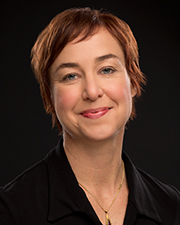
Title: Citizen Sociolinguistics and Internet-Circulated Language Wisdom
Abstract: Citizen Sociolinguistics is the study of the world of language by the people who use it. In this presentation, I will illustrate a methodology for engaging in Citizen Sociolinguistics, drawing on the Internet and daily news (internet circulated, usually) to find “Citizen Sociolinguists” who speak with authority and a wealth of sociolinguistic knowledge. While these internet-circulated sources provide only snapshots of language and social life, I will illustrate how they are highly significant, emblematic snapshots–the ones we should be paying attention to. Finally, drawing on my own Citizen Sociolinguistics Curriculum project, I will show how teachers and students can collaborate in citizen sociolinguistic study of their own, using the methods I have begun to illustrate, to gather and analyze data and develop critical awareness of language and communication patterns around them.
Bio: Betsy Rymes is Associate Professor of Educational Linguistics at the University of Pennsylvania’s Graduate School of Education. Her research, theoretically and methodologically informed by linguistic anthropology, is centered in educational contexts and examines how languages, social interaction, institutions, and the Internet influence what students learn in schools. She has published in Language in Society, Journal of Linguistic Anthropology, Research on the Teaching of English, TESOL Quarterly, Anthropology & Education, Linguistics & Education, and Harvard Educational Review, among others, and is the author of the books Conversational borderlands (Teachers College Press, 2001), and Classroom discourse analysis: A tool for critical reflection (Hampton, 2009) and co-editor, with Stanton Wortham, of Linguistic Anthropology of Education (Praeger, 2003). Her current research investigates students’ communicative repertoires and their function in schools around the Philadelphia area and her most recent book is Communicating beyond language: Everyday engagements with diversity (Routledge, 2014).
Fall 2014 Semester
Thursday, September 11th, 3:30pm, Kiva Auditorium
Dr. Maria Estela Brisk, Boston College
Listen to the talk with a video of the powerpoint (start at 00:36:15)
Title: Engaging Students in Academic Literacies: Genre-based Pedagogy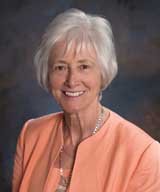
Abstract: Informed by Systemic functional linguistics and genre theory, this presentation will outline an approach to teaching writing that apprentices students to the genres of schooling. The approach emerges from working for close to 10 years with urban schools with large percentages of bilingual learners. An overview of the theory and the approach to teaching as well as examples of the implementation of a couple of sample genres will illustrate this work. It will also show how this approach provides a focused guide to complying with the CCSS. This presentation will suggest concrete ideas on what and how to teach disciplinary writing to help students succeed in school.
Bio: Maria Estela Brisk is a Professor of Education, Teacher Education, Special Education and Curriculum and Instruction Department at the Lynch School of Education, Boston College. She received her Ph. D. in linguistics and bilingual education at the University of New Mexico in1972. Her research and teacher-training interests include elementary students’ writing development, bilingual education, bilingual language and literacy acquisition, methods of teaching literacy, and preparation of mainstream teachers to work with bilingual learners. Dr. Brisk has served as a consultant in legal matters pertaining to bilingual education, and has worked closely with regional and local groups and school systems in developing their bilingual programs as well as mainstream programs that serve bilingual learners. Dr. Brisk was the 1991 Boston University recipient of the Metcalf cup and Metcalf Prize for excellence in teaching. She is the author of the books:
• Bilingual Education: From Compensatory to Quality Schooling
• Literacy and Bilingualism: A Handbook for ALL Teachers
• Situational Context of Education: A Window into the World of Bilingual Learners
• Language Development and Education: Children with Varying Language Experiences. (with P. Menyuk)
• Language, culture, and community in teacher education
• Engaging Students in Academic Literacies: Genre-based Pedagogy for K-5 Classrooms. New York: Routledge.
Professor Brisk, native of Argentina, is a fluent speaker of Spanish.
Monday, September 22nd, 4:00-5:15pm, 1810 Conference Suite (1810 Liacouras Walk, Temple University)
Dr. Bambi Schieffelin, New York University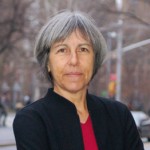
Title: Reshaping Language: New Words, New Worlds
Abstract: In Christian missionization, where the transformation of persons is the explicit goal, the introduction of new languages and innovations in local vernaculars are essential. How these linguistic changes are accomplished, however, has received little attention, since, by the time the anthropologist arrives, such language practices have been well established.
Drawing on long-term ethnographic and linguistic fieldwork documenting the introduction of Christianity in Bosavi, Papua New Guinea in the 1970s, this presentation highlights the translation practices and language ideologies used in creating new ways of talking about and realizing new bodily and affective demeanors. New words and expressive resources had to be created to convey Western concepts of Christian personhood, interiority, and sincerity, as well as sin, central to Bible reading and Christian conversion and belief. These innovations were introduced by recently missionized local pastors through Tok Pisin (the national lingua franca), which they translated back into the Bosavi vernacular during church services, and illustrate the agency and creativity of local participants in effecting cultural and linguistic change. Such language change in progress reveals how local speakers create a new hybridized Christian speech register, which is central to their enacting and embodying a Christian identity, while keeping their vernacular.
Prof. Schieffelin’s visit is sponsored by Temple University’s chapter of Phi Beta Kappa; the Faculty Senate Lectures and Forums Committee; the TESOL Program (College of Education); the Department of Anthropology (College of Liberal Arts); and the Department of Political Science (College of Liberal Arts). For further information, contact Dr. Paul Garrett: paul.garrett@temple.edu
Friday, October 3rd, 3:30pm, Kiva Auditorium
Dr. John McWhorter, Columbia University
Title: A Broken Piano Making Pretty Music is Still Broken: Convincing the Public that Nonstandard Speech isn’t Substandard
Abstract: Linguists and other educators are accustomed to teaching students and the public that nonstandard speech is legitimate because people speak in different ways in different contexts, or because language has always changed, or because nonstandard speech has rules. However, we also regularly bemoan that the public never seems to get the message. This is partly because the public’s sense of standard language as “proper” is so deeply and subjectively ingrained that they are reasonably suspicious at mere proclamations that nonstandard speech is alternate rather than degraded. The public is also reasonable in supposing that much linguistic change is decay, and in supposing that nonstandard rules are actually ingrained mistakes. In this talk I will present some alternate arguments about nonstandard speech that are more effective in changing minds. Examples will include showing how nonstandard varieties are in some ways more complex than standard ones, avoiding presenting nonstandard speech as a list of relaxations of standard speech’s rules, and outlining how the idea of nonstandard speech as illegitimate is simply illogical in terms of how speech varieties all develop according to similar processes.
Bio: John McWhorter is Associate Professor of English and Comparative Literature at Columbia University, teaching linguistics, Western Civilization (in the Core Curriculum program) and American Studies. He is also Contributing Editor for The New Republic, columnist for The New York Daily News and Contributing Editor at The Root.com, and City Journal. He earned his PhD in linguistics from Stanford University in 1993 and became Associate Professor of Linguistics at UC Berkeley after teaching at Cornell University. He was Senior Fellow at the Manhattan Institute from 2002 until 2010.
His academic specialty is language change and language contact. He is the author of The Power of Babel: A Natural History of Language, Doing Our Own Thing: The Degradation of Language and Music in America and Why We Should, Like, Care and Our Magnificent Bastard Tongue: Untold Stories in the History of English. He has also written a book on dialects and Black English, The Word on the Street. His academic linguistics books include The Missing Spanish Creoles: Recovering the Birth of Plantation Contact Languages, Language Interrupted: Signs of Non-Native Acquisition in Standard Language Grammars, and two article anthologies, Defining Creole and, released in 2011, Linguistic Simplicity and Complexity: Why Do Languages Undress? The Teaching Company released his 36-lecture audiovisual course The Story of Human Language in 2004 and The Science of Language in 2008.
Beyond his work in linguistics, he is the author of Losing the Race, an anthology of race writings Authentically Black, Winning the Race: Beyond the Crisis in Black America, and All About the Beat: Why Hip Hop Can’t Save Black America. He has written on race and cultural issues for The New York Times, The New Yorker, New York Magazine, Time, The New Republic, The Washington Post, Forbes, Ebony, Vibe, The New York Daily News, The Chronicle of Higher Education, The Wall Street Journal, The National Review, The Los Angeles Times, The American Enterprise, Books & Culture, and City Journal. He was a weekly columnist for the New York Sun from 2006 to 2008 and has written a monthly “That Being Said” column for The Daily. He has appeared on Meet the Press, The Colbert Report, Dateline NBC, Politically Incorrect, Talk of the Nation, Today, Good Morning, America, The Jim Lehrer Newshour, C-SPAN BookNotes In Depth, The Charlie Rose Show, the Bill Moyers Journal, Parker/Spitzer and Fresh Air, has done occasional commentaries for All Things Considered, appeared weekly on NPR’s News and Notes, has appeared regularly of late on MSNBC’s Up With Chris, and appears regularly on Bloggingheads.TV.
His book What Language Is, What It Isn’t, and What It Could Be was published in 2011, and a third Teaching Company course, Myths, Lies and Half-Truths of Language Usage was released in 2012. Since January 2011, he has produced and played piano for a monthly group cabaret show, New Faces, at the Cornelia Street Cafe in New York City.
Wednesday, November 19th, 3:30pm, Walk Auditorium
Dr. Nelson Flores, University of Pennsylvania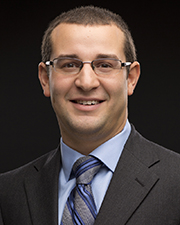
Title: Revitalizing a Race Radical Vision of Bilingual Education
Abstract: This presentation situates support for bilingual education during the U.S. Civil Rights Movement on a continuum of racial subjectivity. On the one end of this continuum was race radicalism, which positioned bilingual education for Latinos within a larger project of racial liberation that sought to produce new subjectivities that resisted hegemonic whiteness. On the other end of this continuum was liberal multiculturalism, which positioned bilingual education for Latino students within a larger project of racial accommodation that sought to mold Latino students into hegemonic white subjectivities. After describing representative examples of each, the presentation examines the ways that liberal multiculturalism has appropriated the social justice rhetoric of the race radicalism to reformulate bilingual education as an official antiracism. This reframing of bilingual education as an official antiracism offers a limited vision for social transformation—one embedded in hegemonic whiteness that pathologizes the language practices of Latinos and other minoritized communities. The presentation ends with a call for reclaiming a race radical vision of bilingual education that fight for spaces that validate and support Latinos and other minoritized communities in engaging in language practices that don’t to conform to hegemonic whiteness.
Bio: Nelson Flores is an assistant professor in Educational Linguistics at the University of Pennsylvania Graduate School of Education. His research analyzes the historical and contemporary role of language ideologies in the marginalization of language-minoritized students. He received is Ph.D. in Urban Education from the CUNY Graduate Center.
